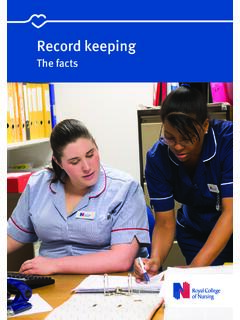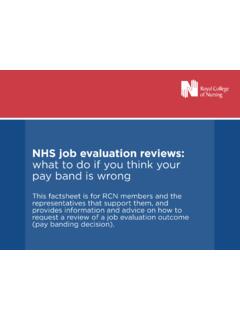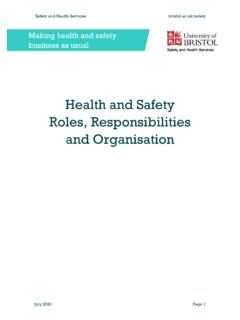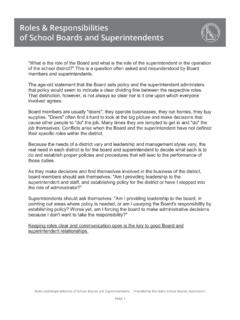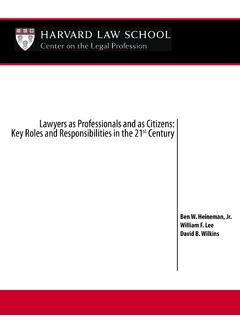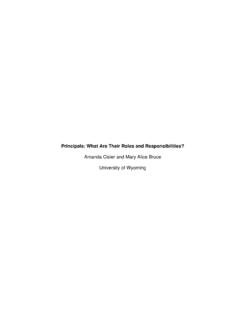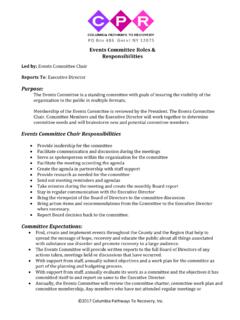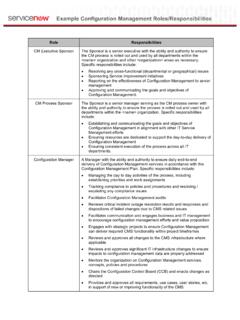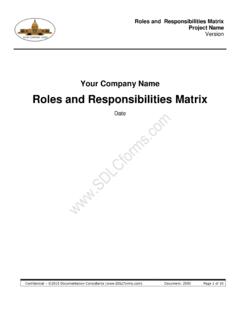Transcription of Adult Safeguarding: Roles and Competencies for Health …
1 Adult safeguarding : Roles and Competencies for Health Care Staff First edition: August 2018. INTERCOLLEGIATE DOCUMENT. For review 2021. Published by the Royal College of Nursing on behalf of the contributing organisations: The British Association of Social Workers Royal College of Midwives British Dental Association Royal College of Occupational Therapists British Geriatrics Society Royal College of Ophthalmologists Chartered Society of Physiotherapy Royal College of Physicians College of Paramedics Royal College of Psychiatrists The College of Podiatry Royal College of Radiologists Institute of Health Visiting Royal Pharmaceutical Society Royal College of General Practitioners The Society and College of Radiographers Royal College of Nursing Adult safeguarding : Roles AND Competencies FOR Health CARE STAFF.
2 Thanks to the writing group Nikki Harvey, Head of safeguarding , Welsh With grateful thanks to all the Health and social Ambulance Services NHS Trust, Chair of care staff who have contributed to the creation National Ambulance safeguarding Group of this document. Alan Taylor, Head of safeguarding , London Supported by NHS England and NHS Wales. Ambulance Services NHS Trust, Vice Chair of National Ambulance safeguarding Group Clare Livingstone, Professional Policy Advisor, The Royal College of Midwives Dr Jane Shears, Head of Social Work and safeguarding , St Andrew's Healthcare, and representing the British Association of Social Workers Dr Flora Greig, Specialist Registrar, Faculty of Old Age Psychiatry Dr Amanda Thompsell, Consultant Old Age Psychiatrist, Chair of the Faculty of Old Age Psychiatry Dr Dawne Garrett, Royal College of Nursing Dr Premila Fade, British Geriatrics Society Dr Jonathan Leach, Joint Honorary Secretary, Royal College of General Practitioners Dr Joy Shacklock, RCGP Clinical Champion Good Practice safeguarding .
3 Royal College of General Practitioners Lauren Harding, Project Manager, Quality Improvement, Clinical Innovation and Research (CIRC), Royal College of General Practitioners Nicola Mills, Royal College of Nursing Susan Masters, Royal College of Nursing Copyright is held by all of the above listed organisations. All rights are reserved. Other than as permitted by law no part of this publication maybe reproduced, stored in a retrieval system, or transmitted in any form or by any means electronic, mechanical, photocopying, recording or otherwise, without prior permission of all parties listed above or a licence permitting restricted copying issued by the Copyright Licensing Agency, Saffron House, 6-10 Kirby Street, London EC1N 8TS.
4 2. INTERCOLLEGIATE DOCUMENT. Contents Foreword 4. 1. Scope of the document 5. 2. Key definitions 6. 3. safeguarding principles 9. 4. Types of abuse, harm and neglect 10. 5. Prevent 12. 6. Section A: Competency Framework 13. Level 1: All staff working in Health settings 14. Level 2: All practitioners that have regular contact with patients, their families or carers, or the public 16. Level 3: Registered Health care staff who engage in assessing, planning, intervening and evaluating the needs of adults where there are safeguarding concerns 18. Level 4: Specialist Roles named professionals 21. Level 5: Specialist Roles designated professionals or equivalent Roles 23. Board level 25. 7. Section B: Education and training 29.
5 1. Education and training 29. 2. Underpinning principles 30. Level 1 33. Level 2 33. Level 3 34. Level 4 36. Level 5 37. Board level 39. 8. Adult safeguarding staffing resource 40. References 41. Appendix 1: Relevant legislation to underpin training and education 42. Appendix 2: Competence level required by role 43. 3. Adult safeguarding : Roles AND Competencies FOR Health CARE STAFF. Foreword As professionals we frequently work with people Practitioners may find it helpful to use this in their moments of greatest need, we witness document to: Health and social inequalities which have a direct effect on the lives of the people we care identify the current level of practice and for. We endeavour to provide responses that role expectations/requirements within the are personalised and effective, regardless of specific care context background, gender, age, culture, sexuality or identify and develop the knowledge and ethnicity.
6 This sensitivity to personalisation is skills in aspects of safeguarding to realise the particularly relevant to Adult safeguarding . potential of the role Increasingly Health and social care integration This guidance sets out minimum training necessitates new Roles and ways of working. requirements and there may be national or This document provides a point of reference to local employment or regulator arrangements help identify and develop the knowledge, skills that pose additional requirements. It is not and competence in safeguarding of the Health intended to replace contractual arrangements care workforce. Education may occur through between commissioners and providers or formal training, accredited programmes, NHS organisations and their employees.
7 It is non-accredited, practice-based learning and acknowledged that some employers may require development opportunities that target not certain staff groups to be trained to a higher only professional, but local service needs. level than described here to better fulfil their Practitioners should also be attentive to any organisational intent and purpose. Adult safeguarding guidance produced by their individual professional bodies and professional It is a new and ambitious document which will regulators. develop further over the coming years. The colleges recognise it will not be possible for all One of the most important principles of staff to access the training within the first year safeguarding is that it is everyone's responsibility.
8 Of publication. It is anticipated that organisations Each professional and organisation must do will reach the required levels of workforce everything they can to ensure that adults at risk training over time. It is expected by the next are protected from abuse, harm and neglect. iteration in 2021 all staff will have received This document has been designed to guide training to attain the appropriate Competencies . professionals and the teams they work with to identify the Competencies they need in order to The education and training principles are set out, support individuals to receive personalised and highlighting flexible learning opportunities to culturally sensitive safeguarding . enable acquisition and maintenance of knowledge and skills.
9 It is acknowledged that many Health For practitioners, the framework Competencies practitioners will need equivalent child and may be a useful tool for: young person's safeguarding training and that developing and reviewing job/role there are many areas of overlap. This can be descriptions taken into consideration when documenting the training undertaken. assessing clinical competence for different levels of practitioner developing personal goals performance appraisal. 4. INTERCOLLEGIATE DOCUMENT. 1. Scope of the document This document has been produced by Healthcare organisations must ensure that those intercollegiate endeavour and is intended to who use their services are safeguarded and that have relevance to all Health care professionals staff are suitably skilled and supported.
10 This and social care colleagues. It is designed to includes private, independent Health care and be used in all organisations that provide or voluntary sector as well as statutory providers. commission Health care for adults regardless of sector, setting or size. The language reflects the The document sets out a framework that different legislation, terms and structures within will help staff, practitioners, employers and the four United Kingdom (UK) countries within commissioners understand the role and level of which intercollegiate colleagues practise. The education/competence awareness/systems which definitions section provides more clarity on the correlates to a particular job purpose. terms used. All Health care organisations have a duty outlined The document relates to individuals of 18 years in legislation to make arrangements to safeguard and over.


